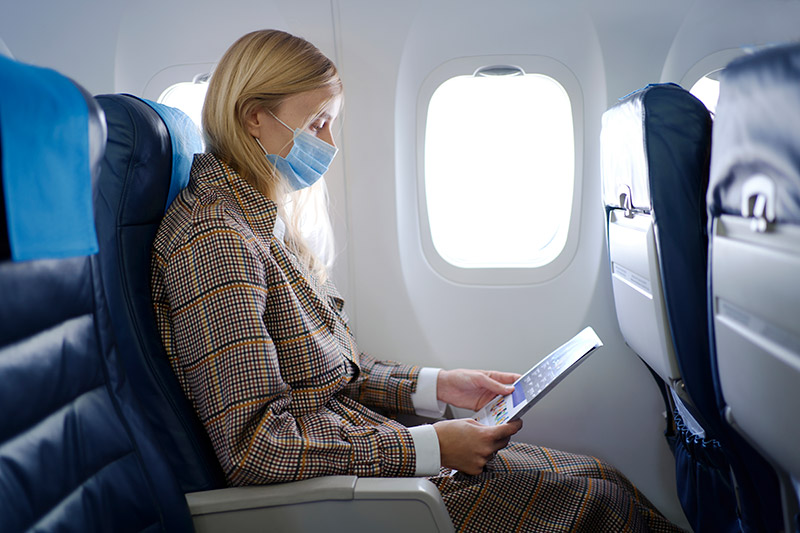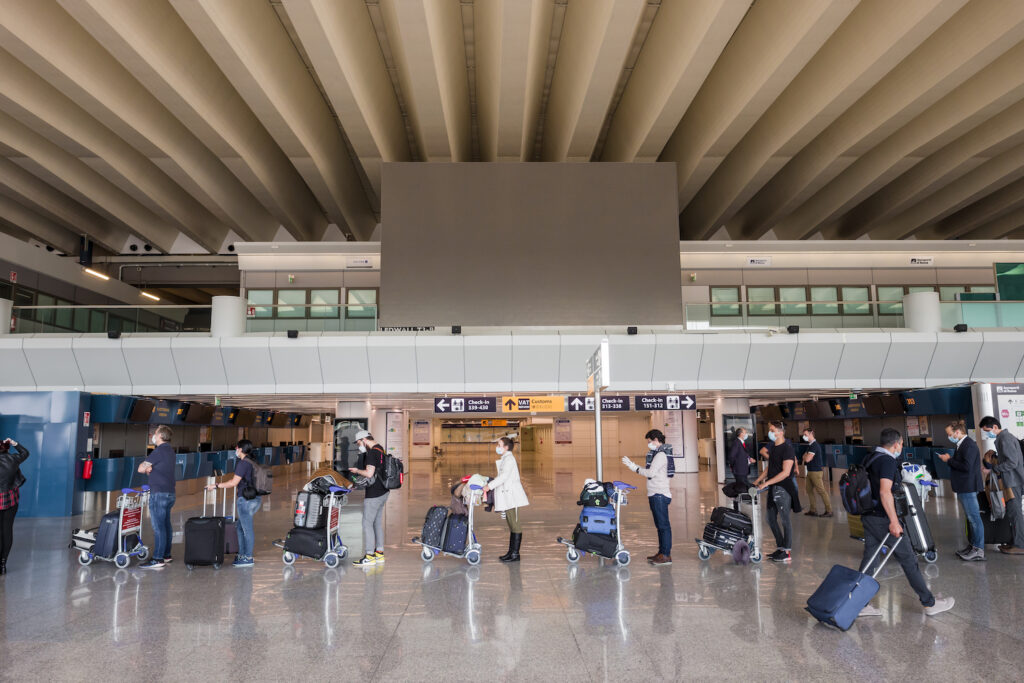What Are Flight Bubbles And Do They Help Expats part 1 – that will be the topic of today’s article.
Before introducing this article, if you are interested in our core services which are expat financial, insurance and mortgages, you can contact me here.
The best time to consider your financial situation is when you are moving to a new country.
Introduction
Flight Bubbles are temporary trade agreements between countries designed to restart commercial passenger services when regular international flights are halted due to the COVID-19 pandemic. They are reciprocal, which means both nations’ airlines receive comparable advantages.
Flight Bubbles began shortly after the pandemic’s first appearance in Hong Kong and quickly spread to other countries’ carriers. The initial Flight Bubble agreement between China and Japan was extended until 2021 when it was replaced by a new one that granted additional rights to both airlines.

While Flight Bubbles allow air travel to remain possible for expatriates and citizens alike, their usefulness is limited by air travel uncertainty after COVID-19. Travel insurance companies and other third parties usually only cover Flight Bubble routes if they are extended or renewed on a long-term basis.
However, it has been a boon for certain companies, particularly in Europe. In the early days of COVID-19, when passenger traffic wasn’t significantly reduced yet, and airlines were still receiving profits from their pre-pandemic routes, several carriers used Flight Bubble agreements to redeploy resources to their former international hubs.
In the long term, the proliferation of Flight Bubbles can be expected to have a significant impact. It has the potential to ensure the current system remains in place even if COVID-19 is eradicated, or it could accelerate consolidation within the industry. We’ve got you covered today if you want to know more about flight bubbles and their benefits.
How Do Flight Bubbles Help Expats

Living abroad is an adventure and an opportunity to gain new experiences and perspectives on life. Of course, it can also be challenging: away from family and friends for the first time, in a foreign country where you don’t speak the language or know anyone, trying to find your feet in a new city or even country – these are just some of the many issues expats have to deal with.
Unfortunately, one of the biggest challenges for those who move abroad is the bureaucracy thrown their way from official companies and organizations. In most countries, administrative procedures are unavoidable, but for expats, there is a third option: flight bubbles. This article looks at seven key benefits of flight bubbles for expats.
- Cheaper ticket
- Prices
- Faster commute time due to shorter layovers
- More airline options when traveling abroad
- Less waiting time at airports on arrival/departure
- Peace of mind with the flight plan
- Possible to travel during the pandemic
- More convenience for companies
Cheaper Ticket Prices
This is the main benefit of flight bubbles. The agreement between China and Japan reduced the cost of travel by over 50% because China needed to outsource its passenger capacity to Japan which was not hit as hard by the pandemic.
Faster Commute Time Due To Shorter Layovers
Your city’s airline now has more direct flights into your destination city, so you don’t have to change airlines at a hub. Because Japan already has direct flights to other Asian countries, it provided China with capacity that allowed for increased connectivity within Asia. This means shorter layovers which can be crucial when trying to catch connecting flights.
More Airline Options When Traveling Abroad
Having more flights available means that your city’s airline can pick and choose which flights take priority. So even though international traffic was down for both airlines, they were still able to go where the fares were highest (economy class passengers who book further in advance).
Less Waiting Time at Airports on Arrival/Departure

Most airports have a lot of spare capacity at their lower-volume international terminals. Fight bubbles allowed airlines to use these terminals, so the wait times were much shorter than before COVID-19 started.
Peace of Mind with the Flight Plan
Because many flights going in and out of epidemic zones are canceled, using Fight Bubbles is the only way to be sure that you can travel when you want to. Airline companies often pay much more attention to Fight Bubble agreements than they do with other flight offers because it’s in their best interest to follow the agreement until its expiry date.
Possible To Travel during the Pandemic
This is one of the major benefits of flight bubbles. Without flight bubbles, getting out of epidemic countries is almost impossible, and expats would have to stay in their own country until the pandemic was over.
However, because fights bubbles allow air travel to remain possible for expatriates and citizens alike, they can use this agreement to leave their home country when needed (e.g., to return to their home country for holidays or visa runs).
More Convenience for Companies
Flight bubbles allow expatriates to work remotely. Before flight bubbles, it was impossible for employees abroad to work during the pandemic because they couldn’t return home without jeopardizing their health.
Now that travel is possible again, many can remain abroad even if their spouse or children are home. This has also encouraged many multinationals to base their headquarters in the Asian hubs (e.g., Shenzhen, Tokyo, Singapore) which means that more job opportunities are available for expats than before.
Why Expats Should Buy International Medical Insurance

It’s a big step to leave your home country and move to another country. There will be many things to think about before you depart. Having medical insurance is something that should go on everyone’s list.
This is something that every expat should consider before leaving home. Having international medical insurance can be really useful, especially in an emergency while living abroad.
1) Avoiding Long Wait for Emergency Care
The stresses of a medical emergency can be enough to make anyone feel faint. But, what about the cost and inconvenience of an emergency hospital visit?
If you are living abroad as an expat, international medical insurance provides a better alternative to a pricey cross-continental trip from Australia to Canada or from the USA to Mexico, or from Italy to Switzerland. International medical insurance provides a quick, convenient and affordable way of receiving the critical care you need – without going through a complicated application process.
Because emergencies can happen at any time, international medical insurance also covers costs such as loss of luggage and transportation back home if necessary. So make sure you check your international medical insurance policy to see how much you are covered.
2) Avoiding the High Cost of Elective Procedures
Many expats choose to relocate because their employers pay most of their medical expenses, including surgery, hospitalization, and medication. It can be a great way to save money. However, many people do not consider that they need international medical insurance for elective procedures and emergencies.
If you are considering an elective procedure such as a tummy tuck, it’s important to know that health care policies limit the maximum allowable amount for certain procedures – and after you exceed this amount, your policy will no longer cover this procedure.
3) Aiding the Transition to Your New Country
Moving to a new country can be overwhelming. You may feel overwhelmed by the prospect of finding accommodations, learning the language, and an entirely new culture. But there are also medical concerns to consider as well.
While you might have had excellent health care with your previous physicians, you now need to find a physician in your new country, settle into a new country, and learn about your health insurance policy.
4) Avoiding International Medical Tourist Stress
If you are traveling to another country for medical reasons, you must know that not all countries treat patients with the same care you are accustomed to at home. Practitioners will consider your international medical insurance policy to determine what level of care they can provide for you.

5) Access to Wider Providers and Facilities
When you have an international medical insurance policy, you will have more options available to you when it comes time to choose a physician or specialist. Hospitals in the country where your company is located may have a wider range of practitioners or international medical insurance providers.
6) Pre-Existing Conditions
Some international medical insurance providers will not cover pre-existing conditions. If you have a condition that requires regular medication, some international medical insurance companies will still provide coverage, but premiums may be higher than for someone who does not have a medical condition.
7) Flexible Treatment Options
If you have a health condition that requires treatment outside of your home country, where you live can make a difference to the amount and type of care you receive. For example, if you need to stay in a country for at least three months or longer before surgery is performed, surgery may be performed locally rather than flying back and forth between countries for a number of months.
8) Support in A Crisis
If you have moved to a new country, it can be challenging to know where to go for help if something goes wrong with your health. In an emergency, having international medical insurance means that you will receive care from a variety of physicians and hospitals in the local area that is familiar with your health care plan.
Your international medical insurance can also provide information on local support groups and organizations to connect you with the local expat community.


